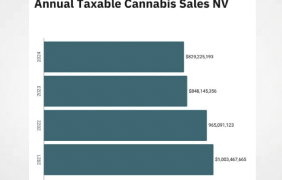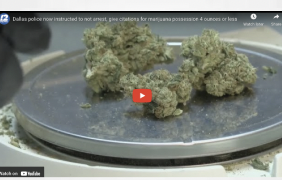Abstract
Cannabis, or marijuana, has potential therapeutic and medicinal properties related to multiple compounds, particularly Δ-9-tetrahydrocannabinol and cannabidiol.
Over the past 25 years, attitudes toward cannabis have evolved rapidly, with expanding legalization of medical and recreational use at the state level in the United States and recreational use nationally in Canada and Uruguay.
As a result, the consumption of cannabis products is increasing considerably, particularly among youth. Our understanding of the safety and efficacy of cannabis has been limited by decades of worldwide illegality and continues to be limited in the United States by the ongoing classification of cannabis as a Schedule 1 controlled substance.
These shifts in cannabis use require clinicians to understand conflicting laws, health implications, and therapeutic possibilities. Cannabis may have therapeutic benefits, but few are cardiovascular in nature.
Conversely, many of the concerning health implications of cannabis include cardiovascular diseases, although they may be mediated by mechanisms of delivery.
This statement critically reviews the use of medicinal and recreational cannabis from a clinical but also a policy and public health perspective by evaluating its safety and efficacy profile, particularly in relationship to cardiovascular health.
The American Heart Association makes every effort to avoid any actual or potential conflicts of interest that may arise as a result of an outside relationship or a personal, professional, or business interest of a member of the writing panel. Specifically, all members of the writing group are required to complete and submit a Disclosure Questionnaire showing all such relationships that might be perceived as real or potential conflicts of interest.
This statement was approved by the American Heart Association Science Advisory and Coordinating Committee on May 18, 2020, and the American Heart Association Executive Committee on June 22, 2020. A copy of the document is available at https://professional.heart.org/statements by using either “Search for Guidelines & Statements” or the “Browse by Topic” area. To purchase additional reprints, call 215-356-2721 or email Meredith.Edelman@wolterskluwer.com
The American Heart Association requests that this document be cited as follows: Page RL 2nd, Allen LA, Kloner RA, Carriker CR, Martel C, Morris AA, Piano MR, Rana JS, Saucedo JF; on behalf of the American Heart Association Clinical Pharmacology Committee and Heart Failure and Transplantation Committee of the Council on Clinical Cardiology; Council on Basic Cardiovascular Sciences; Council on Cardiovascular and Stroke Nursing; Council on Epidemiology and Prevention; Council on Lifestyle and Cardiometabolic Health; and Council on Quality of Care and Outcomes Research. Medical marijuana, recreational cannabis, and cardiovascular health: a scientific statement from the American Heart Association. Circulation. 2020;142:e000–e000. doi: 10.1161/CIR.0000000000000883
The expert peer review of AHA-commissioned documents (eg, scientific statements, clinical practice guidelines, systematic reviews) is conducted by the AHA Office of Science Operations. For more on AHA statements and guidelines development, visit https://professional.heart.org/statements. Select the “Guidelines & Statements” drop-down menu, then click “Publication Development.”
Permissions: Multiple copies, modification, alteration, enhancement, and/or distribution of this document are not permitted without the express permission of the American Heart Association. Instructions for obtaining permission are located at https://www.heart.org/permissions. A link to the “Copyright Permissions Request Form” appears in the second paragraph (https://www.heart.org/en/about-us/statements-and-policies/copyright-request-form).


















